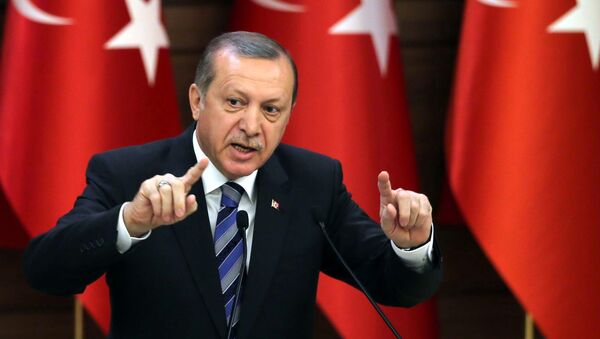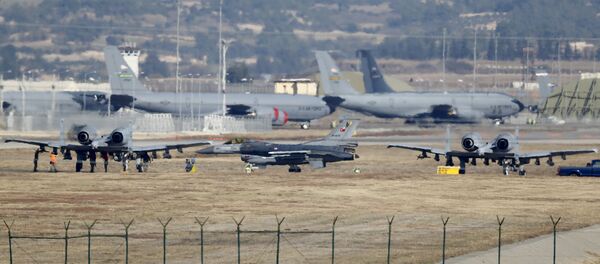The fact that Daesh, also known as IS/Islamic State, has not yet taken responsibility for the attacks in Turkey is a sign of close relations and some kind of agreement between the group and the country's government, Cete believes.
"Although some Turkish government officials say that the ISIS [Daesh] group was responsible for the attack, ISIS has never officially claimed its attacks on Turkish soil," he tells Loud & Clear. "The Turkish border of Syria is a highway for the jihadis who are fighting against [President Bashar] Assad in Syria.
"[It] is still used by the jihadi factions, [including] the ISIS group."
According to Cete, it is Erdogan who has facilitated the rise of Daesh by allowing the Turkish border to stay open so that jihadi elements, including ISIS, can use it as a transit for funds, troops and weapons.
"Erdogan is showing a kind of survival instinct, because [of] its isolation in the region and in the world…so he decided to one step forward to Israel and Russia, to break this isolation," Cete says.
Terrorist attacks targeting Turkish civilians are a message to Turkey, warning Erdogan against improving relations with rivals.
"I think the military significance of these attacks is a kind of message to Turkey due to Turkey's probable steps against ISIS," Cete suggests.
He adds that the opposition in Turkey claims that it's Erdogan's inconsistent foreign policy that is responsible for the terrorist attacks in the country.



